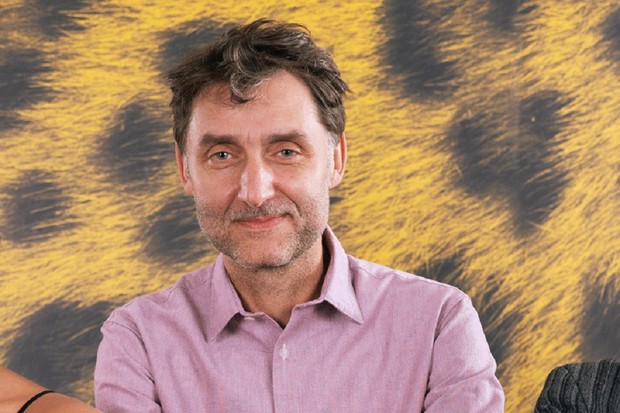LOCARNO 2023 Cineasti del presente
Hugues Hariche • Director of Rivière
“The idea was to start with this damaged character and see how she could escape from her situation through her encounters”
by Teresa Vena
- The Swiss-French director breaks down the inspiration for his intimate coming-of-age film, his approach to the aesthetics and what ice hockey means to him personally

Swiss-French director Hugues Hariche presented his first feature, Rivière [+see also:
film review
trailer
interview: Hugues Hariche
film profile], in the Cineasti del presente section of this year's Locarno Film Festival. We met up with him, and asked him about his inspiration for the film, his approach to the aesthetics and what ice hockey means to him personally.
Cineuropa: What were the main steps in developing the main character?
Hugues Hariche: The film is a coming-of-age movie, so the character's journey was very important. I wanted to build this character as someone who was wounded, and who had a difficult childhood with an abusive mother and an absent father. The idea was to start with this damaged character and see how she could escape from her situation through her encounters.
How did you work together with the actress to build the character?
Each actress brings something different to the role. I had my own ideas, but we built it together as we went along. Flavie Delangle made the role her own and worked on the way she spoke and moved. We didn't have much time together, because we were shooting during COVID and couldn't see each other all the time. But later, all of the actors rehearsed and worked together. We were lucky that the group got on well together, which made the dynamic of the gang more credible on screen, too.
Why did you choose the ice hockey theme?
I wanted to make a film about adolescence and to set it in the town where I grew up – Belfort. I drew on my memories of my teenage years, the gang phenomenon and the ice rink where I spent a lot of time. I also played ice hockey myself for years. Today, the rink hasn't changed; it still has that vintage feel. I was inspired by places I knew well. Apart from that, I like the sport and the visual elements it contains. There's something dynamic and moving about it. Ice hockey was a bit of an original sport. I love the sounds of sliding and ice.
Could you tell us more about the film's aesthetic?
Given that the story was based on my memories, my references were films about childhood from the 1990s, which I watched as a teenager. I was keen to recall the look of a film reel, that grainy look and VCR-type aesthetics. That's why we worked on the lighting, the costumes and the sets to give the film a texture based on the movies that nurtured me at the time.
How important is the border theme to the story?
It's not particularly the border theme that is important, but the topic of travelling. It's about wanting to go somewhere else to see if it's better there. It comes back to me, too, because when I was young, I felt the need to leave Belfort. Now I take pleasure in coming back there. But I think it's important to travel and meet new people.
Did you decide from the start that we weren't going to see the protagonist's father?
Yes; parents are usually absent in the story. And that goes back to my adolescence as well. We used to play outside on our own, spending a lot of time unsupervised with gangs of friends. That's changed today, with parents being much more present.
Did you do any special research while preparing the film?
At first, I thought I'd incorporate more scenes set in social housing. To make sure I didn't make any mistakes, I got advice from a friend. I also did some research into the police aspect, for example.
Are you a perfectionist on set?
I like to be in control, but with quite a modest budget, like we had, that's not necessarily possible. You have to adapt to the conditions you find yourself in.
Did you enjoy reading this article? Please subscribe to our newsletter to receive more stories like this directly in your inbox.















